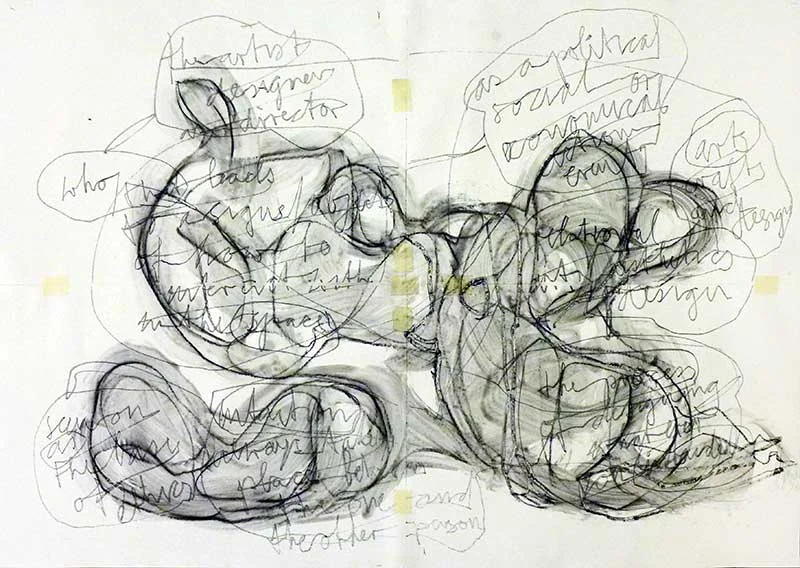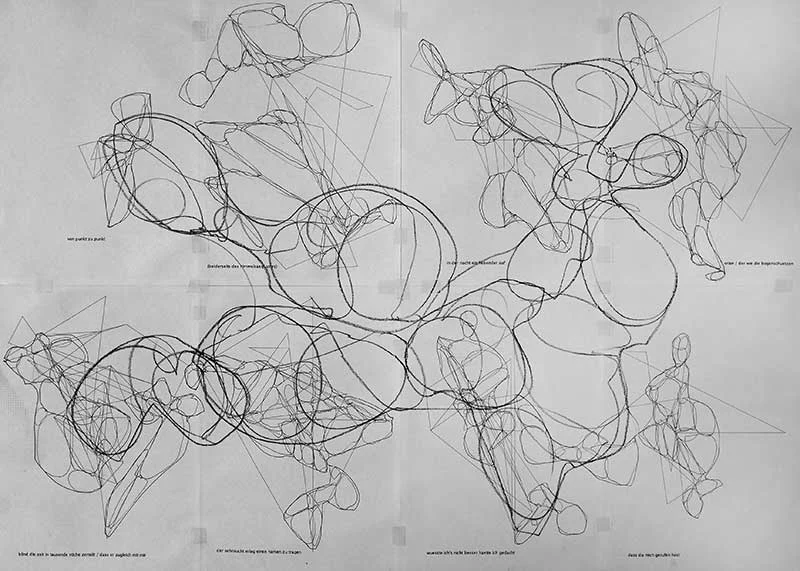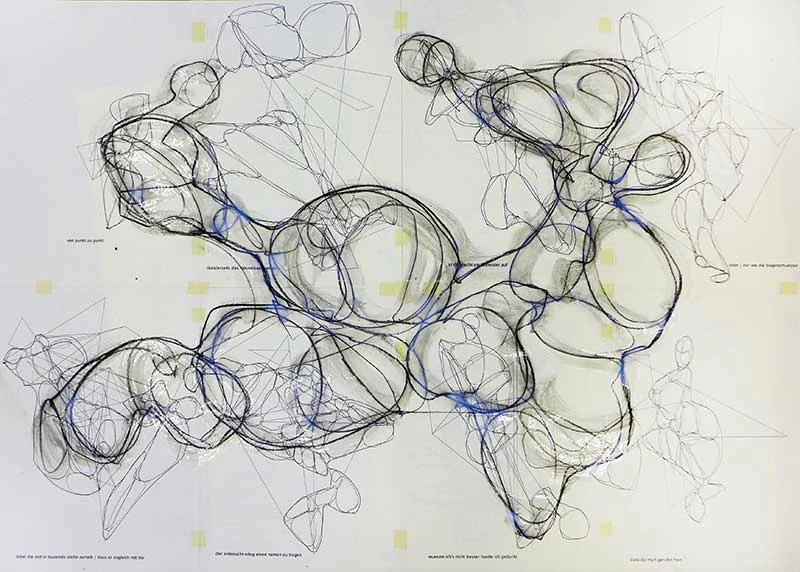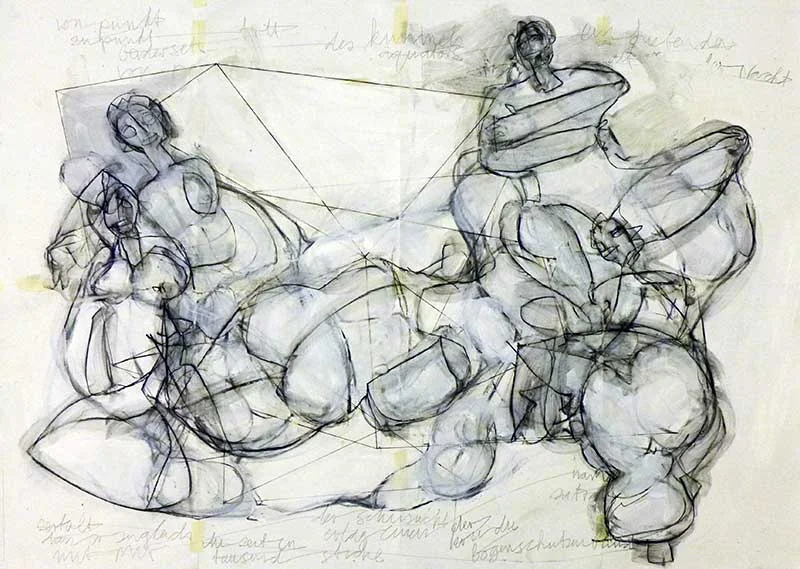notations / fifth lecture / May 15th / 2018
„Every mental phenomenon is
characterized by what the
Scholastics of the Middle Ages
called the intentional
(or mental) in-existence
of an object, and what we might
call, though not wholly
unambiguously, reference to a
content, direction towards
an object (which is not to be
understood here as meaning a
thing), or immanent objectivity.
–
Every mental phenomenon
includes something as object
within itself although they
do not all do so in the same way.
–
In presentation something is
presented in judgement
something is affirmed or denied
/ in love loved
/ in hate hated
/ in desire desired and so on.
–
This intentional in-existence
is characteristic exclusively
of mental phenomena.
No physical phenomenon
exhibits anything like it.
We could, therefore, define
mental phenomena by
saying that they are those
phenomena which contain an
object intentionally within
themselves.“
–
Franz Brentano,
Psychology from an
Empirical Standpoint
–
That's what Brentano
explains: that in our mental
perception every element
of knowledge is bound to
an intention
–
The knowledge-element is
involuntarily seen as an
object which is needed for
to realize the intended
condition (of being).
Both, the element of knowledge
and the included intention
therein he combined in the
term „mental phenomenon“
/ there is no object without
intention
/ the intention is the core of
objective existence
1a
our intention
by making art / design is
to produce desire / lust
–
to do so:
define your own method /
clarify the given conditions
a concept of what is called
Relational Art
(also its social and cultural conditions)
–
written on a double-page A4
2a
our desire / lust is
to remain in the tense / the tension
/ between our intention
and the object (of our intentionality)
–
this tension has to be ordered in rows
according the compositorial rules
of grammar and volume
(extent, degree, scale, magnitude
(importance, meaning, significance,
signification, concern))
-
these traces we have to follow
in order to let the poetical narration
of our intentional lust become real
by itself
3
in order to achieve our intention
(remaining in-tension)
we are building rows
of the elements
(of the materialized intentions)
–
every element
consists of perforations / points
connected by straight
and curved lines (straight according the shortest way
from point to pont /
curved according the movement of the body
/ eyes
/ head
/ chest
/ arm
/ hand-wrist
/ fingers
–
i.e. defining the topological space
by deconstructing the Euclidian space
and arrange the elements
anew
by building rows
in a size of 840 x 1188 mm
4
about how we have succeeded
or failed
with our intentions
(mostly combined with stupid
rhetorical conclusions about the reasons
and matching / not less stupid
moral considerations)
this is the way we have learned to read
the rows
in a rhetorical or moral sense
in other words
as a fable, parable or allegory
but now we reject the pre-given task
and instead of fulfilling
we define our own episode by stepping
into an open process of designing
-
repeating and scaling the movement
5a
every element is a body
(no matter how big or small it may be)
/ a hull, fuselage, trunk, hulk, torso
(substance, essence, texture, gut)
an element within a space
/ a space recognized by the chiaroscuro
/ light and dark
–
adding volume / chiaroscuro
6
repeating and scaling
second version
–
as soon as we are forced
to leave our well known intentions
(those of the Euclidean space
which strive for a perfect ordering system)
we get afraid to fall back
into a childish or cosmic chaos
8a
draw after the drawing
second version
–
art / design =
to arrange the childish
/ cosmic chaos
again and again anew
according the compositorial
necessity of our desire
10a
facial expression in linear
construction
by using only charcoal
and liquid glue or lacquer
–
what happens within the face?
in relation between
/ torso
/ arms
/ hands
/ legs
/ feet
11a
facial expression in chiaroscuro
by using charcoal
liquid glue and paper collage
11c
facial expression in relation
to the memory
(when I was a student)
–
how to proceed?
–
intention is
/ to follow the traces
(for example Georges Jacques Danton
/ Gerog Büchner / Lenz)
/ to finish all the needed studies
(for to extend the relational space between
Ungaretti / Saba / Garcia Lorca / Celan
the spaces in-between
in their dimension of grammar and volume
as well as of sexuality, society and politics)
until the end of July
–
„Indifferently he moved on;
the way did not matter to him,
up or down.“
Georg Büchner, Lenz





























